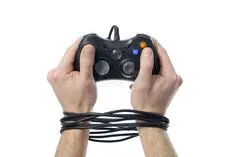
The Road to Rehabilitation: Understanding Gaming Addiction Recovery
- Admin
Gaming addiction can have profound effects on individuals' lives, impacting their physical health, mental well-being, and relationships. Rehabilitation programs tailored specifically for gaming addiction offer structured interventions and comprehensive support to help individuals break free from the cycle of addiction and rebuild their lives. In this article, we'll explore the concept of gaming addiction rehabilitation, the key components of rehabilitation programs, and how they support individuals on their journey to recovery.
1. Understanding Gaming Addiction:
Before delving into rehabilitation, it's essential to understand the nature of gaming addiction. Gaming addiction, also known as gaming disorder, is characterized by excessive and compulsive gaming behavior that leads to significant impairment or distress. Individuals with gaming addiction may prioritize gaming over other activities, experience withdrawal symptoms when unable to play, and struggle to control or reduce their gaming habits despite negative consequences.
2. Components of Gaming Addiction Rehabilitation:
Gaming addiction rehabilitation programs typically incorporate a variety of components to address the complex nature of addiction. These may include:
Individualized Treatment Plans: Each individual's journey to recovery is unique, and rehabilitation programs tailor treatment plans to meet the specific needs and goals of each participant. Treatment plans may include a combination of therapies, counseling, education, and support services.
Therapeutic Interventions: Therapeutic interventions such as cognitive-behavioral therapy (CBT), mindfulness-based therapies, and family therapy help individuals address underlying issues contributing to addiction, develop coping strategies, and rebuild healthy relationships with gaming and other areas of life.
Skill-Building Workshops: Skill-building workshops teach practical skills and techniques for managing cravings, coping with triggers, improving communication, and enhancing overall well-being. These workshops empower individuals with the tools they need to navigate challenges and maintain sobriety.
Peer Support Groups: Peer support groups provide opportunities for individuals to connect with others who are facing similar challenges and share their experiences in a supportive and understanding environment. Through peer support, individuals find validation, encouragement, and motivation on the journey to recovery.
Education and Awareness: Education and awareness programs provide participants with information about gaming addiction, its effects on health and well-being, and strategies for recovery. By understanding the nature of addiction and its impact, individuals are better equipped to make informed choices and take proactive steps towards recovery.
3. Benefits of Gaming Addiction Rehabilitation:
Participating in a gaming addiction rehabilitation program offers numerous benefits for individuals seeking to overcome addiction and rebuild their lives. These include:
Comprehensive Support: Rehabilitation programs provide comprehensive support encompassing physical, emotional, and psychological aspects of addiction recovery. Participants receive guidance, encouragement, and resources to help them navigate the challenges of recovery and build a solid foundation for long-term sobriety.
Structured Environment: Rehabilitation programs offer a structured and supportive environment conducive to healing and growth. Participants have access to a range of therapeutic interventions, activities, and resources designed to facilitate recovery and promote positive change.
Peer Connection: Connecting with others who share similar experiences fosters a sense of camaraderie, understanding, and validation. Peer support groups provide opportunities for individuals to share their struggles, insights, and successes, creating a supportive community of recovery.
Personal Growth: Rehabilitation programs encourage personal growth, self-discovery, and empowerment. Participants learn valuable skills, develop healthy coping mechanisms, and gain insights into themselves and their addiction, laying the groundwork for a brighter future free from addiction.
Conclusion:
Gaming addiction rehabilitation programs offer a path to healing, recovery, and transformation for individuals struggling with addiction. By addressing the complex factors contributing to addiction and providing comprehensive support, therapeutic interventions, peer connection, and opportunities for personal growth, rehabilitation programs empower individuals to reclaim control over their lives and build a brighter future. If you or someone you know is struggling with gaming addiction, consider reaching out to a rehabilitation program for guidance, support, and hope on the journey to recovery.
